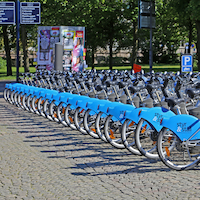research
FIBRE4YARDS: Transferring advanced production technologies to the naval sector
Fibre4yards is a project funded by the European Union's Horizon 2020 that gathers 13 partner organisations from six European countries -CIMNE (coordinator), SAS L-UP, TSI, TUL, INEGI, NAVAL Group, COMPASSIS, Curve Works, IRURENA, 10XL, Innov Ateknea, Bureau Veritas, IRT Jules Verne- for 36 months to contribute to maintaining the European leadership in ship building and maintenance. The project aims to transfer, adapt and combine targeted advanced production technologies from other competitive industrial sectors into a Shipyard 4.0 environment.
To ensure global competitiveness of small and medium European shipyards, a step change is needed. The key to accomplish this relies on overcoming high production costs and low repeatable quality processes which currently inhibit mass production of Fibre Reinforced Plastic (FRP) ship parts. FIBRE4YARDS will bring a cost-efficient, digitized, automated and modular FRP vessel production approach to increase EU shipbuilders’ competitiveness. FIBRE4YARDS objective is to match end-users' needs with targeted advanced production technologies (adaptive molds, ATP/AFP, 3D printing, curved pultrusion profiles, hot stamping, innovative composite connections) from other competitive industrial sectors, and to transfer, adapt and combine them to improve FRP shipyards' production and maintenance, in a Shipyard 4.0 environment.
Real-scale demonstrators will be designed and manufactured to prove feasibility of technologies. Based on the targeted technologies, design and engineering of small/medium-length FRP vessels will be assessed using advanced computational tools.
Compliance with the regulatory framework will be ensured, and the necessary personnel training will be provided. All within validated and viable business models targeting a circular and resource efficient maritime sector. This will lead to an improved cost effectiveness of European shipyards and their supply chain, an increased turn-over and a growth of jobs with new 21st century skillsets.
Consortium's high number of SMEs and a FRP shipyard, facilitate direct exploitation in the targeted supply chain. A robust cost-benefit analysis for stakeholders, business plans for successful commercialization and market uptake will be provided, specifically recommending an adequate IPR protection strategy. Environmental impact diminution is achieved through weight reduction (less fuel consumption), recyclable materials, energy efficient production and addressing noise pollution.
Dissemination actions
On March 8th, @cimne researcher Xavier Martínez will present #FIBRE4YARDS: Fibre Composite Manufacturing Technologies for the Automation and Modular Construction in Shipyards at @AdvanFactories #Congress, which will be held in #Barcelona #CCIB
— CIMNE (@cimne) May 28, 2021
🔗https://t.co/nfps8AQsG2

.jpg)




















